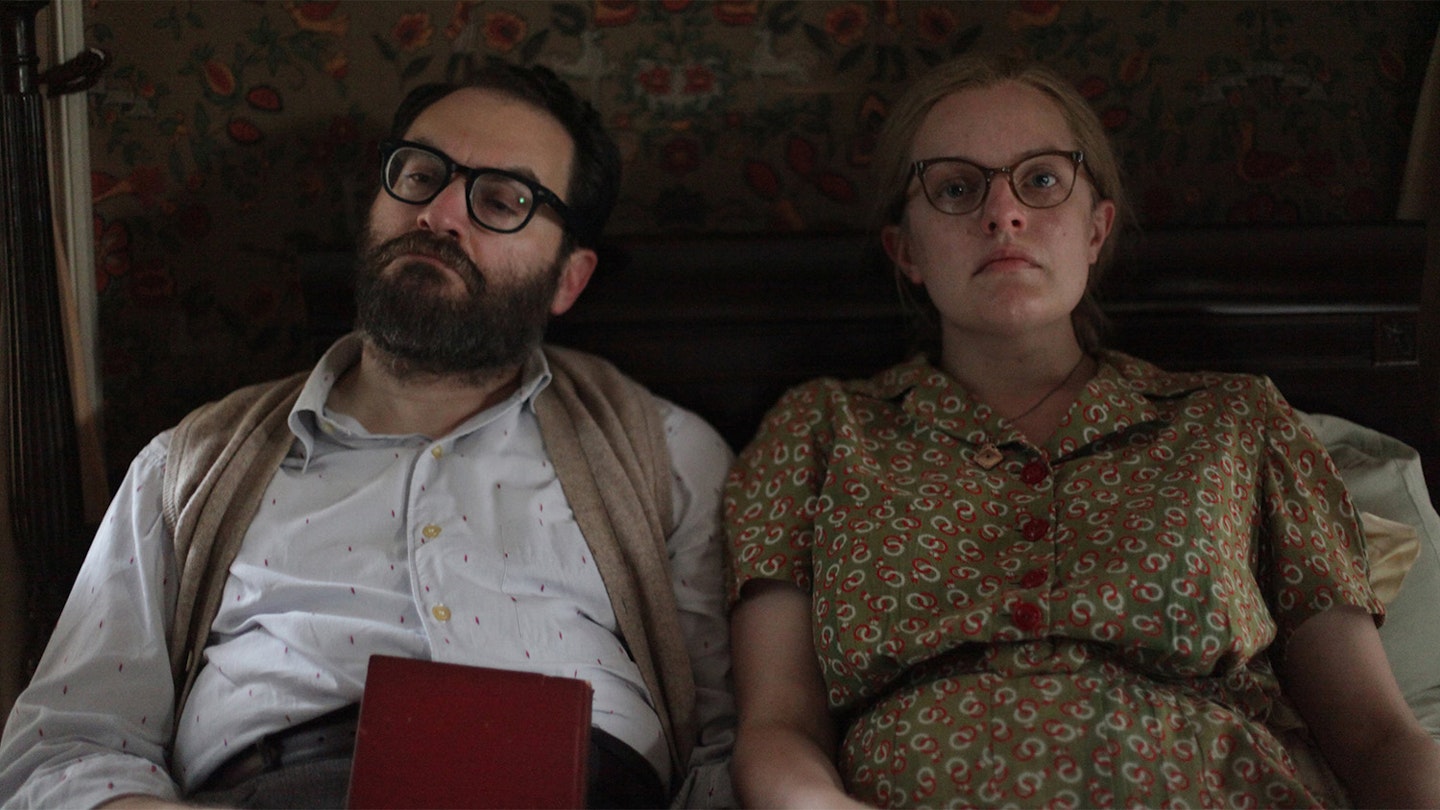Elisabeth Moss made a speciality of playing brilliant women teetering on the thinnest of edges. The hurricane of madness whirling in her eye, the strength locked in her jaw as her teeth grind. And after 2019’s Her Smell, Shirley feels like a natural evolution, even if this time much of the madness is held inside.
The late 1940s, and horror writer Shirley Jackson (Moss) hasn’t left the house in two months. Overwhelmed by anxiety and agoraphobia, she is both alone and unhappy with her cheating husband, college professor Stanley Hyman (Michael Stuhlbarg), their relationship built on toxicity and a dependence fused by fierce cruelty. Into this tightly sealed hell they call home appears sprightly newlywed couple Fred (Logan Lerman) and pregnant wife Rose (Odessa Young). They’ve been coaxed there ostensibly to help run the house so an unravelling Shirley can write. But the responsibility, as 1950s gender norms dictate, lies purely with Rose, and as the two women spend their days inside together, Rose (excellently handled by Young) finds herself erotically in thrall to both the house and the writer.

Much of the film’s effectiveness is down to the home that contains them, rendered a character as much as its human inhabitants, through the incredible work of production designer Sue Chan. She’s aided by composer Tamar-kali and cinematographer Sturla Brandth Grøvlen, who create the menacing, claustrophobic mood of the space between the four walls through sharp, searing string-plucks and tight, unsteady handheld shots. The walls might not be able to talk, but they can sag and oppress and vibrate.
Moss puts in what could be argued is the performance of her life.
As the film gathers pace, realism blends with fantasy; with horror, fact and fiction until you’re not sure where one ends and the other begins. Which could be an almighty mess were it not in the hands of director Josephine Decker (Thou Wast Mild And Lovely, Madeline’s Madeline). Here, she takes what could — horror of actual horrors — have been a traditional biopic and upends it until it’s anything but.
Her material, though, is rich. Jackson herself was a prolific writer, writing over 200 short stories, two memoirs and six novels including, most famously, The Haunting Of Hill House, and the novel that’s at the centre of this film, Hangsaman. Susan Scarf Merrell’s 2014 novel about Shirley has been wrestled by screenwriter Sarah Gubbins into this story — the main Who’s Afraid Of Virginia Woolf? narrative between the two couples might be fiction, but the character of Shirley herself is built, bone by bone, from what is well known about her life and personality.
Moss puts in what could be argued is the performance of her life — playing both the victim and the potential abuser. A woman who defies gender norms and succumbs to others, flinching under her husband’s disapproval, desperate for his warmth. And Michael Stuhlbarg continues his excellent run as both his wife’s biggest fan and harshest critic. The two tap-dance ever closer to the edge, but somehow always stay upright, together.

